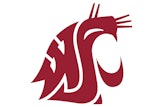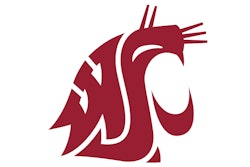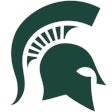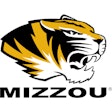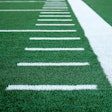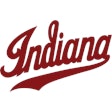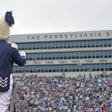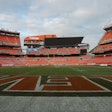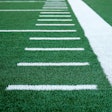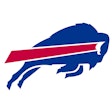Promotions have always been about attracting fans, but today's cluttered entertainment landscape demands ever-increasing creativity - and a heightened sense of humor.
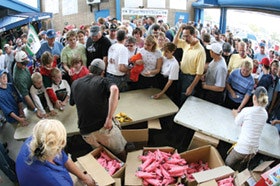
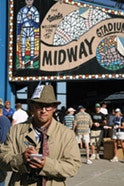
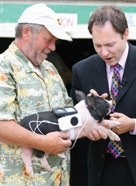
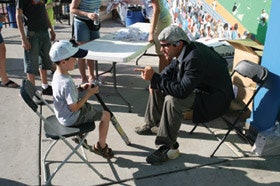
If this didn't give fans a feel for "Being Jason Giambi," as the game was promoted, it at least gave them a sense of how the Saints operate. As if they didn't already know. Each of the team's 48 home games is themed, and every one of them has been sold out during the franchise's 15-year existence - no small feat for an independent Minor League Baseball club competing seven miles down the road from the big-league Twins in a park with portable toilets and bench seating for 6,829. But fans can buy a hot dog for $2 and a soda for $2.50, and maybe - on the right night - win some very used wheels. "A 17-year-old won the grand prize," says Saints director of corporate sales Jack Weatherman, adding that the Probe was purchased via Craigslist for $700. "He was thrilled that he would have something to drive around. He didn't care that it had George Mitchell's face decaled on the hood."
Carefree would do well to describe most MiLB clubs' approach to promotions these days. The Saints organization, for sure, is never afraid to deride a corporate giant or rib a belittled athlete. "Being Jason Giambi Night" may have earned a Veeckie Award from ESPN The Magazine as the top promotion of 2007, but it wasn't even the St. Paul fans' favorite, according to a poll at saintsbaseball.com. They preferred the Michael Vick Chew Toy Giveaway and the unveiling of the iPig - a live piglet harnessed with speaker, iPod and cell phone holders that was offered for sale on the eve of Apple's much-anticipated iPhone debut. "It can do everything the iPhone can, but it's about a third the price and a lot cuter," Weatherman says. No one purchased the pig, but that was never the goal. Roasting an overly hyped product rollout was.
According to team co-owner and president Mike Veeck - whose late hall-of-fame father, Bill, serves as the ESPN award's namesake - every great promotion has several key ingredients. "It has to have joy to it, and it has to have some incongruity and some irreverence, probably, to create the joy," Veeck says. "It also has to have a basic integrity, and not in a syrupy, smarmy way. We're doing it, obviously, to get some attention and to sell some tickets, but you really do have to think it's a funny idea."
Topical humor is a must in filling today's unrelenting promotional schedules, and suspected steroid users and admitted dog abusers made for easy targets in more than one minor-league city this summer. Aug. 1 was "Asterisk Night" at Municipal Stadium in Hagerstown, Md., where the hometown Suns handed out Official Asterisk Fan Club cards to the first 756 fans through the gates. Each card contained fine print that made the holder eligible for prize giveaways announced throughout the game. Even the press release announcing the promotion contained four asterisks and four accompanying footnotes. "For some reason a lot of people are talking about asterisks this year," Suns assistant general manager C.J. Johnson stated in the release. "Hopefully having this celebration will encourage use of asterisks and lead to a new appreciation for this important literary tool."
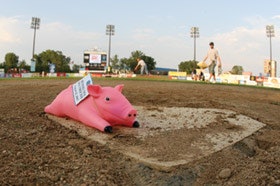
Staff involvement was also a key to the success of "Bad Hair Night," with one Power employee voluntarily shaving stripes into his own head and others teasing their coiffures to new heights. A styling station outside the fan assistance center allowed the team's Diamond Girls to style kids' hair with abundant supplies of ties, sprays, gels and mousse.
But these proved to be lightweight promotions compared to a recurring theme at Power games in 2007. "Our biggest success this year was the 'Fastest Fat Man Contest,' " Call says. "That was the one that the fans really got behind."
Proposed by the club's general manager as a one-time gag, interest proved so immense that a half-dozen home-to-first heats had to be staged after games played on Thursday "Buck Nights" (dollar admission, beers, fountain drinks and, naturally, hot dogs), with a final centerfield-to-leftfield-foul-line race crowning a champion (who pocketed $500 for his considerable efforts). Contestants had to meet minimum weight requirements (250 pounds for those shorter than six feet, 300 for everybody else) and sign a liability waiver. "Even the players and the coaches were telling us, 'That's the funniest thing you guys have done,' " says Call, who intends to reprise the races next season. "We had people standing around after the games, waiting and watching to see who was going to race and who was going to win. They were cheering for these guys. We were like, 'Holy Cow! They really think this is hysterical. We need to keep this going.' "
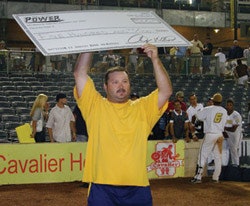
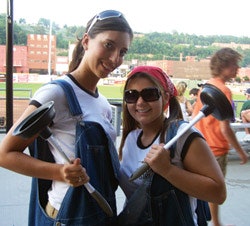
"You always want to try to find something that's new and different and hasn't been done in every other ballpark, but that's becoming increasingly difficult to do," adds Call. "So maybe it's taking an old promotion and putting a different spin on it. The key thing that you want to do is always make sure that the fans are involved."
Involving complete unknowns from hundreds of miles away helped the Portland Beavers make a name for themselves nationwide this past season. Their take on the classic (and now ubiquitous) bobblehead giveaway was to comb online phone registries for real people named Bob L. Head, then have fans vote on which one should be immortalized in spring-loaded resin. As one of three finalists from three different states who were ultimately flown in by the Beavers for "Bob L. Head Night," Robert Leroy Head of Maquoketa, Iowa, garnered 51 percent of the nearly 30,000 votes cast (based on souvenir program-style bios) during two weeks of Internet balloting. "Being involved in this promotion became a part-time job for all three guys," says Chris Metz, the club's vice president of baseball operations/communications. "Iowa Bob did a local TV piece that went national, and then it really blew up. ESPN's 'First Take' did a piece involving all three, and individually those guys were doing multiple radio interviews every day all over the country."
The Aug. 18 game outdrew the Beavers' season average by 3,000 fans, with the first 2,000 through the turnstiles receiving the giveaway. Still others came away with another freebie. "It's funny, we have autograph sessions every year - big-time celebrities, hall-of-fame players - but his was one of the most popular we've ever had," Metz says. "This guy from Iowa had his day of fame and people ate it up. Certainly, the national attention is fun, but ultimately you need to get local people interested, because you want them to show up at the games."
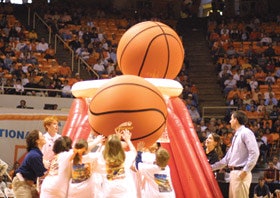
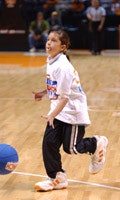
Consider the storied University of Tennessee women's basketball program: a seventh national championship this past April, the nation's highest attendance nine out of the past 10 seasons, and nothing taken for granted. How else to explain Pat Summitt bobblehead giveaways, halftime hypnosis demonstrations or the spectacle of children dribbling down the Thompson-Boling Arena court in XL shorts and size-15 shoes. All but gone are the buy-one-get-one-free UT ticket promotions of years past, replaced by an emphasis on adding value to the game-day experience - from pyrotechnic-infused player introductions to mascot sledding runs down the arena stairs. "It's about entertainment," says former UT marketing and promotions director Ron Goch, founder of The Telios Group, a sports marketing firm in South Jordan, Utah. "There's a lot that needs to happen off the court to win fans over and really create an event. Whether you're winning or losing, you want people to start talking: 'Wait 'til you see this!' "
That's why on any given night one might see current promotions director Jimmy Delaney donning suit and tie a la Monty Hall and heading into the stands for the Lady Vols version of "Let's Make a Deal" ("The 2008 season tickets in my pocket or a chance to pick from three mystery prizes..."). "If a fan winds up winning the picture signed by our marketing interns, then the crowd gets a good laugh out of it," says Delaney, who interned under Goch as an undergraduate 11 years ago. "From the time fans walk in the door until they walk out, we do everything we can to make it more than just a basketball game. There are plenty of times when fans come in and have no idea what they're going to get."
By definition, promotions have to let fans in on enough of the joke to get them out of the house in the first place, but the good ones still hold a few surprises. "People want you to take chances," insists Veeck, who's taken plenty during his career, including the all-too-successful but ill-fated Disco Demolition Night at Chicago's old Comiskey Park in 1979, which caused a near riot and forced his father's White Sox to forfeit a game. Mike Veeck's attempt to give away a vasectomy one Father's Day (at the suggestion, he's quick to add, of three female staffers) caused a public outcry and was quickly cancelled, but Veeck remains unapologetic. "I still think it was a funny idea, and we sure got a lot of coverage," he says. "I grew up listening to my father, who was a pretty smart operator, say to me, 'Miguel, the purists are always saying that you can open your gates and just play a ballgame. But do that and you'll see 65 percent of your stadium filled with empty seats.' "
Given that advice, it's not surprising (or should it be?) that it was one of Mike Veeck's teams that staged "Nobody Night," a July 2002 game between the Charleston Riverdogs and the visiting Columbus RedStixx. For five innings, fans were locked outside the stadium (and instead redirected to a party offering discounted food and beverages) for the sole purpose of establishing an unbreakable MiLB record for lowest single-game attendance: zero. The ceremonial first pitch was launched toward the diamond from behind the grandstand. In-game promotions involved players as contestants. Then, once the game was official, fans were allowed in. "We come to the games when we can, but this was an extra draw," Aaron Houghman, one of approximately 1,800 fans to eventually enter the stadium that night, told The Associated Press. "It's pretty unique. For them to do something like this, it's cool."
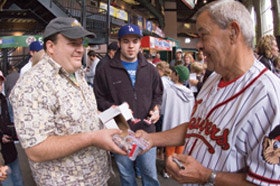
The Bob L. Head doll may be the Beavers' biggest attention-grabber to date, but it's now officially part of promotions history. "We won't do that one again," Metz says. "The question is how do we outdo ourselves - or at least keep that momentum going next year."














